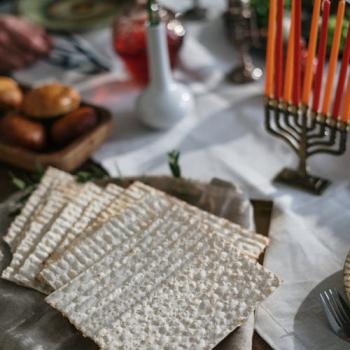Catholic Trivia Quiz Answers
1. Those people who did not switch from an older calendar to the new one promulgated by Pope Gregory XIII were called “April fools” because they did not observe the new date for the beginning of the year. The calendar was established in the papal bull Inter gravissimas (1582)
2. Mardi Gras is “Fat Tuesday” in French, referring to the day of feast before the beginning of the Lenten fast on Ash Wednesday. In some countries it’s called Carnevale, from Latin carne vale, or “farewell to meat.”
3. According to Venerable Bede, Easter was the name of a pagan goddess in Anglo-Saxon England whose feast was at the Vernal Equinox (March 20). The use of the name in English is unlike most European languages, which tend to follow the Hebrew word for “Passover,” which Jesus celebrated with his disciples at the Last Supper.
4. Pentecost (from the Greek meaning “fifty”) is the name given to the Jewish feast of weeks, the fiftieth day from "the next day after the sabbath" of the Passover (Leviticus 23:11). The early Christians followed the Jewish calendar, and the descent of the Holy Spirit on the apostles, described in Acts chapter 2, took place during this Jewish feast. It is the fiftieth day of the Easter season.
5. White or gold, symbolizing the resurrection of Christ and the new life of the baptized. The color during Pentecost is red, symbolizing the descent of the Holy Spirit.
6. Saint Thomas Aquinas (1225-1274)
7. Ash Wednesday
8. Palms or olive branches, recalling the triumphal entry of Jesus into Jerusalem, during which those who greeted him waved palm fronds (see John 12: 12-13 and Matthew 21: 1-8)
9. The burned remains of the palm fronds used in the Palm Sunday liturgy of the year before; this practice dates to at least the eighth century, according to the Catholic Encylcopedia.
10. The fourth or middle Sunday of Lent; it developed as a way to celebrate the halfway mark in the Lenten fast. Laetare is a Latin word meaning “rejoice,” and comes from a liturgical text used on that day.
11. In some European countries, eggs were part of the Lenten fast, and so eating them on Easter was a sign of the breaking of the fast.
12. Good Friday, because the Eucharist is reserved in memory of Christ’s death and the placement of his body in the tomb.
4/6/2009 4:00:00 AM




